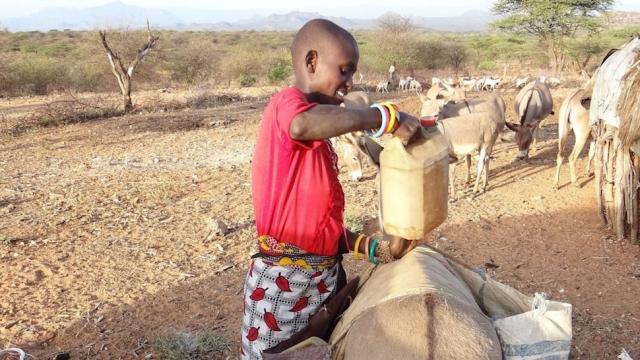What the first thing you think of when you hear the word “drone?” It might be killing machines . Or reconnaissance quadcopters . Or maybe a honey bee. But for a countless number of people in Africa, it could be a flying packmule with life-saving cargo.
On Monday, the organisers of the Flying Donkey Challenge announced the first 33 entrants in a series of events that will culminate in a drone race around Mount Kenya in 24 hours and a multi-million dollar prize for the winner. This specific group hails from all over the world and will compete in a subchallenge from November 8 through the 16 in Kenya, though the final challenge will take place in 2020. For now, each team has proposed a design for a so-called “flying donkey,” an unmanned aerial vehicle capable of delivering and collecting cargo that weighs about 20kgs.
The overarching idea, here, is obvious: Build a better cargo drone , get more cargo to more people in Africa. “Commercial drone technology has strong potential here to help overcome the limitations of the continent’s transportation infrastructure and deliver goods and services in remote regions — spurring new models for business and service delivery,” Kamal Bhattacharya, Director of IBM Research, Africa, said in a press release.
Think less beer delivery drone and more medicine delivery drone. Food is an also option, of course, but the payload is pretty limited. You’d probably need a small fleet to feed a village for any extended amount of time.
Africa does certainly has an infrastructure problem, a problem that’s made worse by the fact that Africa’s population is growing faster than the infrastructure needed to support it. This is only going to get worse in coming years, which is precisely why the Flying Donkey Challenge was conceived. And, if it all pans out, the participants stand to build some technology that could make life better for some people in Africa. That’s a big “if,” though.
Cynics will be quick to point out how unlikely it is for these kinds of projects to come to fruition, however. Announcing some ambitious project involving a headline-friendly word like “drones” is one thing, but actually orchestrating all of the moving parts to make it a viable program is another. Take Facebook’s plan to provide wireless internet to isolated communities all over Africa, for example. Is it an great project that will conclude with thousands of people in remote regions of Africa surfing Facebook? Or is it just a great marketing manoeuvre.
The partners involved in the Flying Donkey Challenge including IMB, Africa as well as Swiss WorldCargo, the air freight division of Swiss Airlines. The National Center of Competence in Research (NCCR) Robotics in Switzerland is also helping out. Regardless of intentions, it will be interesting to see what kinds of innovations these guys help to enable, and it will be great if, in ten years, these flying donkeys are delivering food and medicine to people all over the continent. Again, that’s a big “if.” [Robohub]
Image via Flying Donkey Challenge
